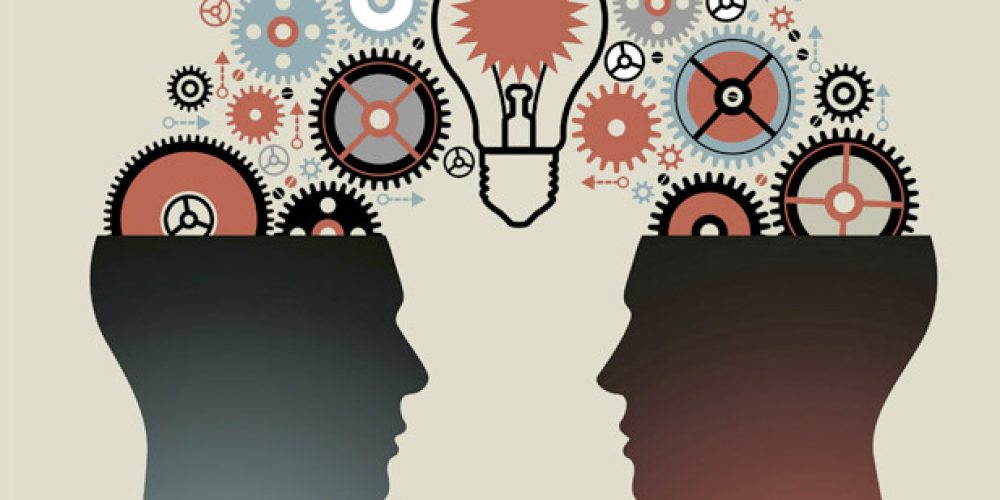What is Emotional Intelligence?
Emotional intelligence refers to a person’s abilities and awareness of personal and interpersonal emotions, communication, and relationships.
In other words, it’s a social science word applied to how well people do in relationships with others, and how well they understand and manage emotions. It’s a term that was coined in the 1995 book by Daniel Goleman, Emotional Intelligence. The book is regularly updated and remains a popular reference for this kind of work.
One source describes the 4 key areas of Emotional Intelligence in this way:
- Self-awareness
- Recognizing your own emotional state and the effect your emotions are having on you
- Self-management
- Using what you know about your emotional states to inform the actions you take and direct your behavior
- Social awareness
- Recognizing the emotional states of others and understanding what’s happening with them
- Relationship management
- Incorporating your knowledge of everyone’s emotional states to help manage relationships and conversations.
We all have an Emotional Intelligence “EQ,” that tells us how adept we are at personal interactions, getting needs met, and having positive relationships. By knowing your EQ, you can understand your strengths and weaknesses and take some action at improvement.
Why Emotional Intelligence at Work Matters
Being a productive, cooperative member of a team is a key aspect of being a good worker. And great customer service is a direct indicator of high emotional intelligence levels. In fact, any business relationship benefits from being emotionally intelligent.
When the whole company works well together, it’s evidence of great company culture. Emotional intelligence at work means fewer miscommunication mishaps, easier workflows, and better relationships among workers.
Related: What is Company Culture? (And Does it Matter?)
Cultivating empathy and compassion go a long way. In the business world, being able to be flexible enough to see something from someone else’s point of view can mean more productive meetings, and more successful business transactions.
How to Promote Workplace Emotional Intelligence
To start an emotional intelligence program at work, you could look for a company that will give each employee an assessment and build a program. Or you can DIY it. The Consortium for Research on Emotional Intelligence in Organizations has a technical resource for an emotional intelligence program.
You could also create an optional program for employees to assess themselves and work towards greater emotional intelligence.
There is, of course, an app for that (see below).

Step 1: Track Your Own Emotions
Start tracking your own emotions at work throughout the day. Apps like Happiness all do similar things: at various times throughout the day, the app pings you and you note how you’re feeling and what you’re doing. After a few days of this, you may begin to notice trends in your workday.
You’ll be able to track how you feel at certain times of day, after interacting with certain people, how long it’s been since you ate something or took a break.
All this information is a great way to get started on the first aspect of emotional intelligence, which is awareness of your own emotions.
Step 2: Change Behavior
Armed with this knowledge, you can move to step 2 — using knowledge of your emotions to direct your behavior.
When you know that 2 pm is your worst time of day (tired, hungry, unfocused, crabby mood), you can try to reschedule important meetings for a different time of day. Or even if you can’t reschedule, you can know you’re not going to be on your best game, and you can make a note to double check your work when you’re feeling more focused and happier about life.
Step 3: Notice Others’ Emotions
After spending quite a bit of time understanding your own emotions and how they affect your behavior, it will start to come more naturally to notice other people’s emotions and behaviors and start to make some connections.
Developing empathy and seeing things from another’s point of view can be a key way to reduce miscommunication. After all, you know how you make decisions when you’re grumpy or tired or feeling left out. So when you see that’s happening for someone else, you can have compassion and not take things personally.

Step 4: Integrate
Combining everything you learned so far will make this part easy. Even if other people aren’t doing this same kind of work (there’s always that one person who is always a grump, right?) cultivating your emotional intelligence can make life work easier.
Relationships work smoother, people feel heard, and self-awareness keeps everything in perspective.


